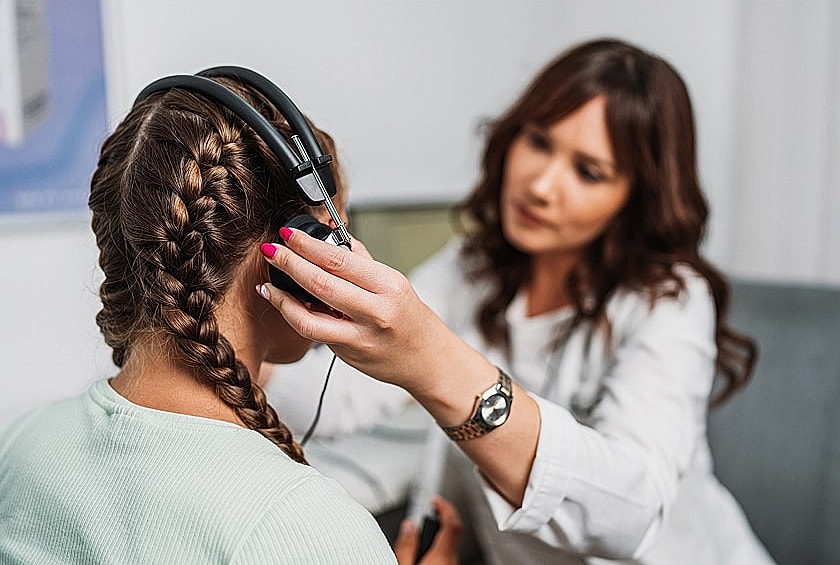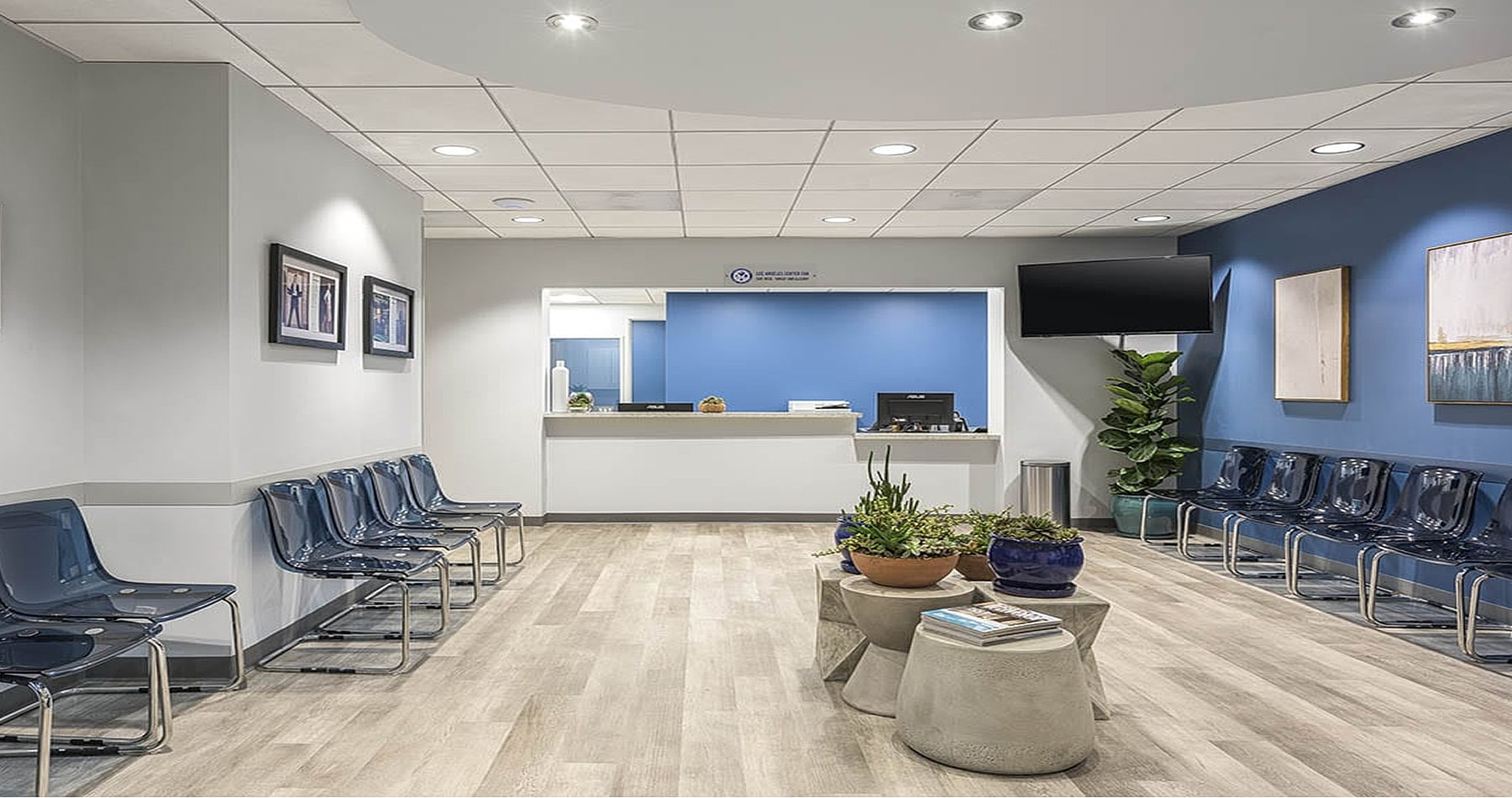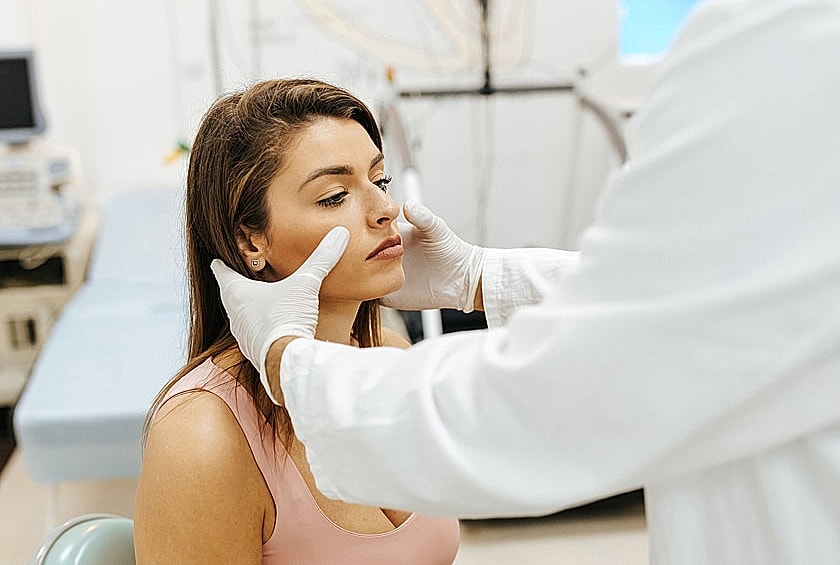If you're struggling with dizziness, vertigo, or balance problems, our in-depth evaluations can identify the cause and guide you toward effective solutions.

















Persistent dizziness, vertigo, or balance problems can make everyday tasks feel daunting. These symptoms are often tied to issues within the vestibular system, part of the inner ear that controls balance and spatial orientation. Comprehensive dizziness and balance testing is essential for identifying the underlying cause, paving the way for accurate diagnosis and effective, personalized treatment.
At the Southern California Center for Ear, Nose, Throat, and Allergy (SoCal ENT) in Palmdale, we use advanced diagnostic tools to assess your vestibular function with precision. Our skilled ENT physicians and audiologists deliver expert-level care in a supportive, patient-centered environment, guiding you toward long-term relief with a plan tailored to your unique needs.
If balance challenges are disrupting your life, our team is here to help you regain control and confidence. Contact us today to schedule your consultation and take the first step toward lasting stability.





If you’ve ever felt as if the room is spinning, had trouble maintaining your balance, or experienced sudden waves of dizziness, your inner ear may be to blame. The vestibular system, located within the inner ear, is essential for maintaining balance and helping you stay oriented in space. When this system is disrupted, whether due to infection, fluid imbalance, or a vestibular disorder, it can lead to symptoms like vertigo, lightheadedness, a sense of instability, or the feeling that you’re floating or tilting.
Some people also struggle with blurred vision, sensitivity to crowded environments, or dizziness triggered by quick movements. These symptoms can have a major impact on daily life, making routine activities like walking, driving, or getting out of bed feel challenging and unsafe. Identifying the root cause of your dizziness is the key to effective treatment. At SoCal ENT, our goal is to help you understand your symptoms and take steps toward steady, confident living.
When the inner ear isn’t functioning properly, it can disrupt how your brain interprets movement and balance, leading to symptoms like dizziness and unsteadiness. At SoCal ENT, our comprehensive dizziness and balance testing is designed to identify the underlying cause by examining how your inner ear, visual system, and brain work together to keep you steady.
Using a range of advanced diagnostic tools, our specialists evaluate how your body responds to changes in position and motion. These tests help us accurately diagnose a variety of conditions, including vestibular disorders, Meniere’s disease, benign paroxysmal positional vertigo (BPPV), and other balance-related issues.
Videonystagmography, or VNG, is a diagnostic test that measures involuntary eye movements (known as nystagmus) to help identify balance issues linked to inner ear dysfunction. During the evaluation, you’ll wear goggles that record your eye movements as you follow moving targets, change positions, and experience gentle temperature changes using warm and cool air or water. Abnormal movement patterns can reveal problems within the vestibular system that may be contributing to your dizziness or imbalance.
Electronystagmography, or ENG, tracks eye movements to evaluate balance function, much like VNG. However, instead of infrared cameras, ENG uses small surface electrodes placed around the eyes to detect electrical signals generated by eye movement. This test helps assess how well your inner ear and brain are working together to control balance and spatial awareness, making it a valuable tool in diagnosing vestibular disorders.
Posturography measures how well your body maintains balance under varying conditions. During the test, you’ll stand on a computerized platform equipped with sensors that monitor your posture, stability, and physical reactions to shifts in surface or movement. This evaluation helps identify balance-related issues linked to vestibular or neuromuscular disorders, offering insight into the causes of dizziness, unsteadiness, or falls.
Comprehensive balance testing is a non-invasive, in-office evaluation that typically takes about one to two hours to complete. Your audiologist or ENT specialist will guide you through a series of visual, positional, and sensory tests designed to measure how your body processes balance and movement.
During your evaluation, you may be guided through tasks such as tracking moving lights with your eyes, shifting head or body positions, or standing on a balance platform while sensors monitor your reactions. Certain tests may also use gentle temperature changes in the ear canal to evaluate how well your vestibular system is functioning. While all procedures are safe and non-invasive, it’s normal for some patients to experience brief dizziness, which typically subsides quickly.
Once your testing is complete, our specialists will carefully review the results and develop a customized treatment plan tailored to your specific needs, aimed at improving balance and reducing episodes of dizziness.

While many balance problems originate from inner ear dysfunction, dizziness can also result from neurological conditions, medication side effects, or issues with the muscles and joints. Our advanced diagnostic testing helps identify a wide range of conditions, including:
If you’re experiencing dizziness, vertigo, or unsteadiness, our comprehensive testing can uncover the underlying cause and help guide you toward targeted, effective treatment.
An accurate diagnosis is essential for effective treatment of dizziness and balance problems. Through comprehensive testing, you can:
Determine whether your symptoms stem from an inner ear issue, neurological disorder, or another contributing factor.
Results guide customized care, including vestibular rehabilitation therapy to retrain balance and coordination.
Early intervention helps improve stability, lower the chance of falls, and support safer movement.
Knowing what’s behind your symptoms gives you the confidence to manage your condition and improve your quality of life.

If you’re dealing with ongoing dizziness, vertigo, balance issues, or instability, diagnostic testing can offer important insights. This type of evaluation is especially helpful for individuals who experience:
Balance testing is safe and well-tolerated. During your visit, our specialists will review your medical history and address any specific concerns you may have before testing begins.


Comprehensive dizziness and balance testing offers a clear and accurate diagnosis by uncovering the root cause of your symptoms. Whether your imbalance is linked to a vestibular disorder, neurological issue, or another medical condition, the results help our team at SoCal ENT develop a customized treatment approach designed specifically for your needs.
After your evaluation, our specialists will thoroughly review the findings with you, explaining how the function of your inner ear, eye movements, and postural responses may be contributing to your dizziness. With this detailed understanding, we can recommend targeted interventions, such as vestibular rehabilitation therapy, medication, balance retraining, or specialized care for conditions like BPPV or Meniere’s disease. If additional medical attention is required, our collaborative team of ENT experts will coordinate your care to ensure you receive the most effective treatment available.
At SoCal ENT, we prioritize personalized, compassionate care, supporting you at every step as you work toward improved stability, fewer symptoms, and a better quality of life.
Certain tests might cause a moment of dizziness, but this typically subsides quickly.
Typically, evaluations last between one and two hours, depending on the specific tests conducted.
To ensure accurate results, you may need to avoid certain medications, caffeine, and alcohol before your test. Your healthcare provider will give you specific instructions.
Our specialists will assess your results and discuss possible treatments with you. These options may include therapy, medication, or further testing.
Yes, detecting vestibular disorders early helps us create a tailored treatment plan to enhance your stability and decrease the likelihood of falls.